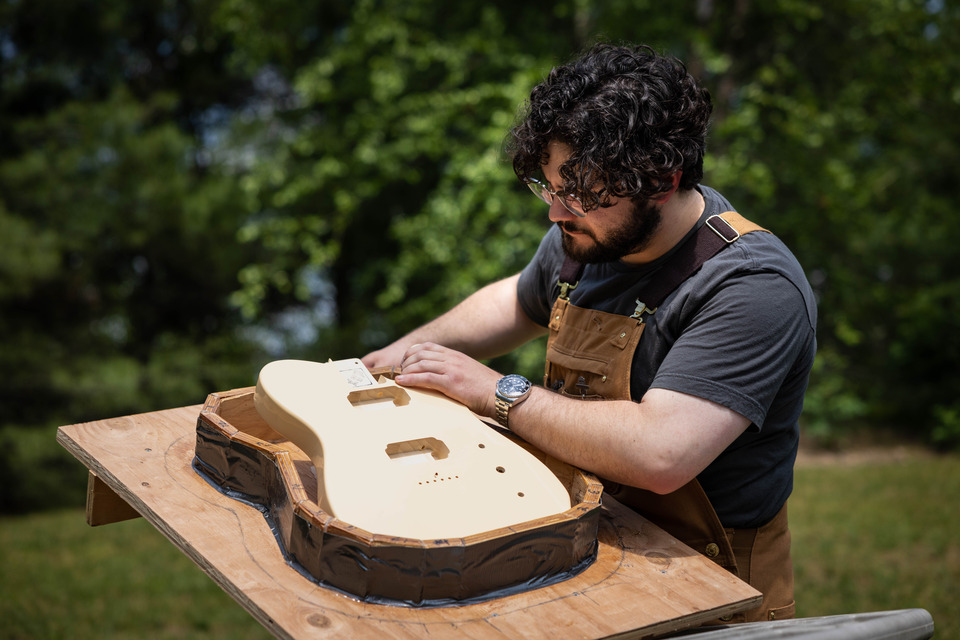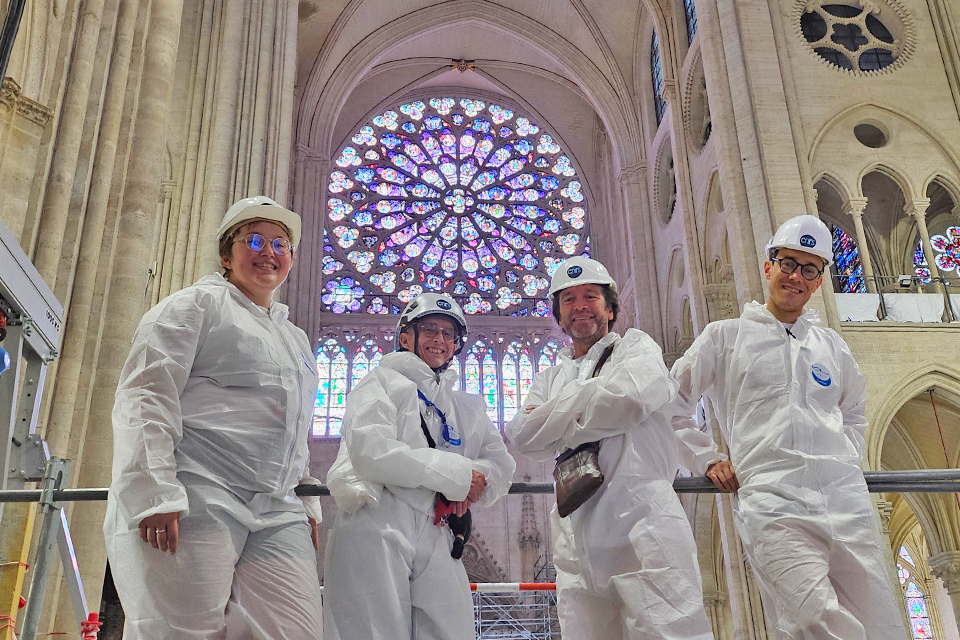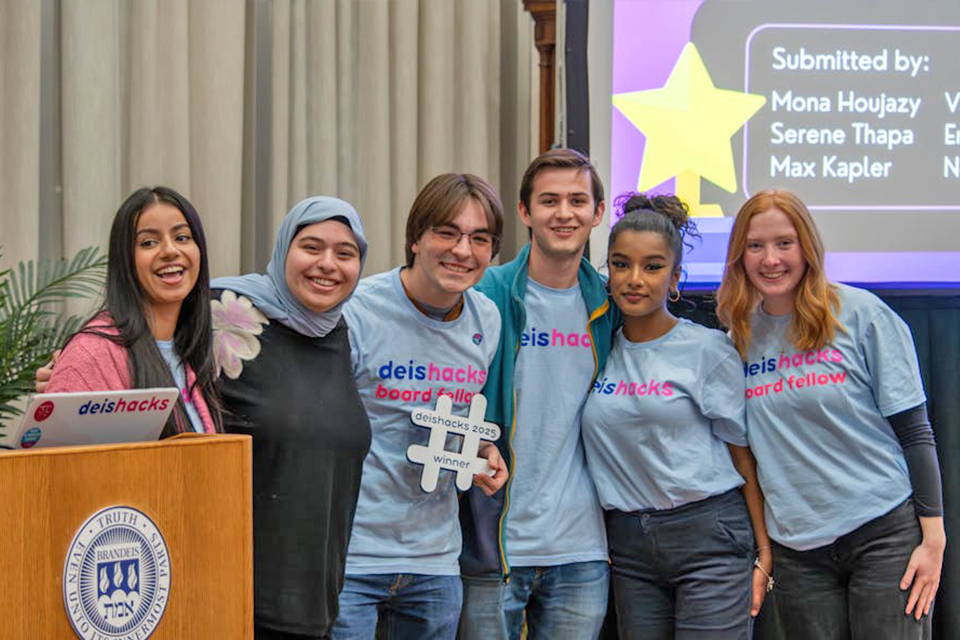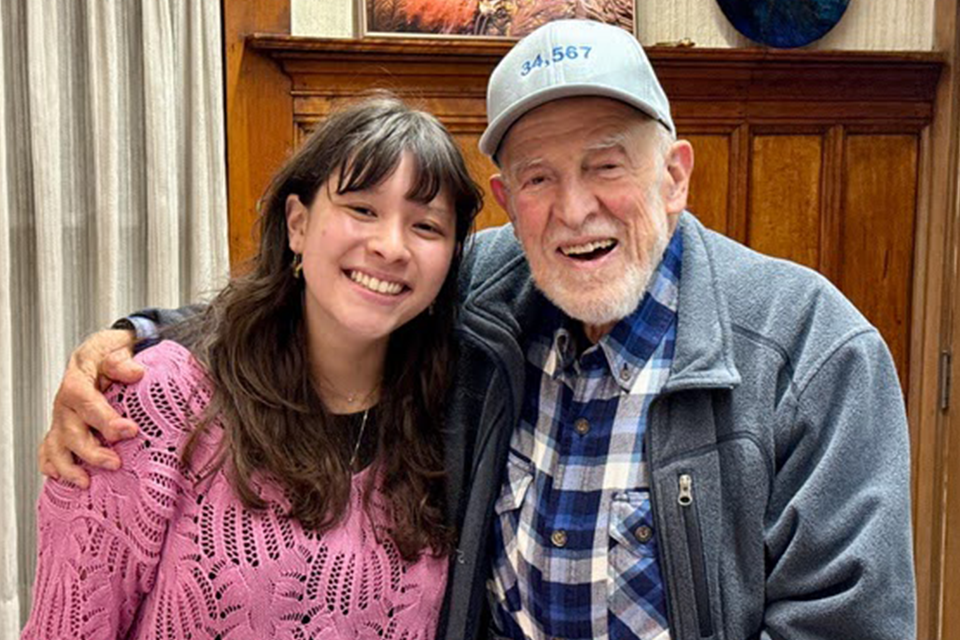Brandeis Alumni, Family and Friends
Guitars, Fish Hatcheries, and Decarbonization: How Brandeis Alumni are Building a More Sustainable World
April 9, 2025
Four alumni share the work they’re doing to protect and preserve the environment.

Whether they’re raising rainbow trout in Minnesota fish hatcheries or harvesting invasive plants to make more environmentally friendly guitars, Brandeis alumni are making a big difference in sustainability.
These alumni are leaders in both the public and private sectors, and they all have different areas of expertise. Yet, they all share one thing in common: a desire to leave the world a better place than they found it.
In honor of Earth Day this month, the Alumni Association caught up with a few of them.
Sam Aronson ’20, Heller MBA’23, and Alden Kennedy, Heller MBA’23
These two grads are behind Tree for the Taking, a guitar company that relies on an invasive tree species for its wood. Their goal: to lessen the environmental impact of guitar manufacturing.
Aronson founded the company while still a student at Brandeis. As part of his coursework, he was researching the devastating effects of logging in the Tongass National Forest in Alaska. Around the same time, he learned about the Tree of Heaven, an invasive plant species that damages surrounding forestry. As a guitarist himself, the two things gave him the idea to make guitars by harvesting wood from the invasive plant, and Tree for the Taking was born. He eventually enlisted Kennedy to join the venture, and together the pair secured funding for the project through a campus startup challenge. And now, the company is building prototype instruments, selling to their first real-world customers, and producing videos about the guitars that garner hundreds of thousands of views on social media. They’ve even made a guitar using Tree of Heaven harvested from Brandeis’ own campus.
“I don’t want my generation to look back and have to say, sorry, we used up all of the exotic wood, all of the old growth wood, for guitars,” Aronson says. “I want to, from the inside, steer the guitar manufacturing industry away from deforestation.”
Moses Ong ’03
As a fish hatchery supervisor for the Minnesota Department of Natural Resources, Ong raises fish, namely rainbow and brook trout, for recreational fisheries in the state. His work is crucial to providing unique fishing opportunities and protecting lakes and rivers across the northern half of Minnesota.
Prior to his current position, Ong was the assistant supervisor at another hatchery, and before that he worked at environmental learning centers as a naturalist and conservation educator for the Missouri Department of Conservation.
Originally from Los Angeles, Ong says his current position is a dream job, both for the positive impact it has on the environment, and for how his profession combines work with his passion for the outdoors.
“My work is part of the human effort to provide opportunities for people to fish, and more broadly to connect to nature and understand its value,” says Ong. “That’s what drives me on a daily basis.”
Hannah Moshay ’18
In the first decade of her career, Moshay has already gathered sustainability experience in academia, government, and business.
Currently, she works as a research associate at Lux Research. With a focus on agriculture and consumer packaged goods, she helps businesses navigate emerging technologies in agriculture to advance their sustainability goals, from fields to supply chains.
Previously, she worked at North Carolina State University, supporting organic commodity crop research and working to address the needs of organic growers throughout the state. She also has experience working for the USDA National Institute of Food and Agriculture, supporting the administration of research grants related to soil health and water quantity and quality challenges.
“At the heart of sustainability is thinking critically about our impact on the planet, as well as how climate, nature, and people are interconnected,” says Moshay. “In my work, I am inspired every day. One day, I may be focused on technology to combat deforestation in global cocoa supply chains, and the next, I could be exploring new plant breeding technology for climate resilient crops.”
Jen Singer ’00
Singer is a director for energy and sustainability programs at ICF, a global advisory and technology services provider. A seasoned environmental professional with nearly 20 years of experience, her primary focus is programs that improve the energy performance and support the decarbonization of commercial and public sector buildings.
She also serves as project manager for the U.S. Department of Energy’s Better Buildings program, overseeing energy efficiency and decarbonization goals for commercial and public sector organizations. Previously, she was the project manager for the City of Cambridge’s (Massachusetts), providing technical support to property owners and managers subject to building energy use disclosure laws.
“The climate is changing around us and I feel as though I have a personal responsibility to both prepare our communities through resilience planning and do what I can to reduce the pollution causing further negative impacts by empowering market leaders to set aggressive reduction goals,” says Singer. “While there is so much activity happening on the local, national and international arena, I feel there is a clear path for me to empower and influence others to get involved.”









